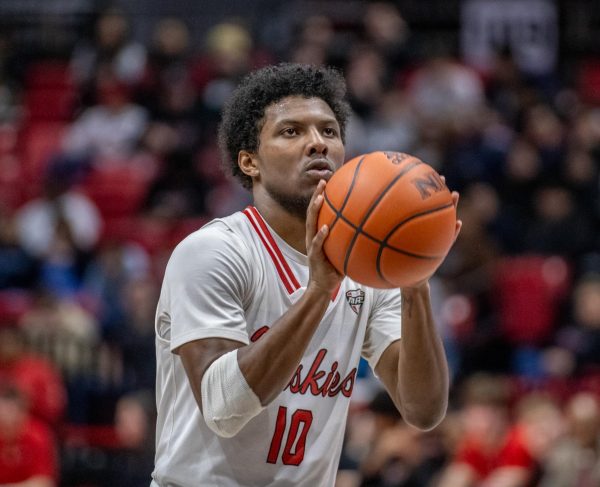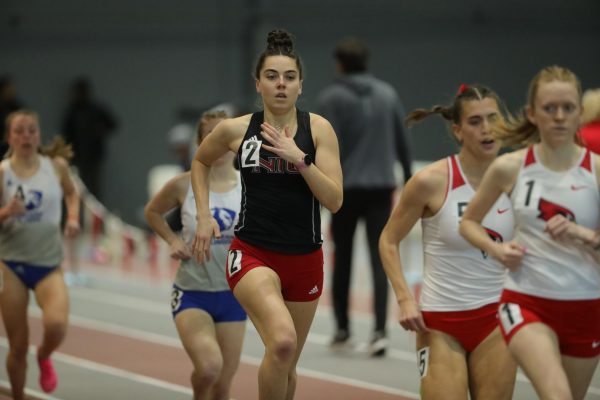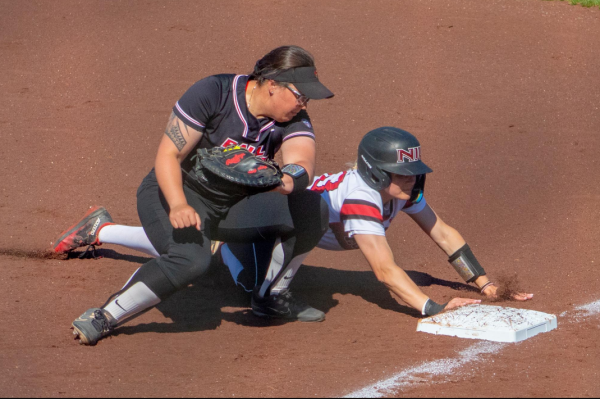NIU report reveals gender imbalance
November 5, 1993
NIU is following the nation’s universities and colleges by employing more male than female professors.
The colleges of NIU have fewer female full professors and more female instructors compared to males.
In every school except Professional Studies, the males hold five times as many full professor positions as females. But in every college except Engineering and Engineering Technology, women instructors outnumber male instructors by at least 50 percent, according to 1992 figures from the department of Finance and Planning.
David Graff, dean of the College of Business, said there are more women now in the tenure track system. They are working toward their tenure and can only become tenured after six years of teaching.
“Only in the last two years have there been women available. There will also be more women in the lower teaching positions now because they have to work their way up,” Graff said.
Graff said he feels female students need role models in the College of Business but there are not as many women to hire.
The College of Engineering and Engineering Technology has the lowest number of females, 48 men to three women, but that is because of the small number of women in that field of study, said Rumualdas Kasuba, dean of Engineering and Engineering Technology.
“Women are very hard to find. There are so many universities in the nation that there is a bidding war for them. Everyone is fighting for female teachers,” he said.
Kasuba said the department is trying to reach out to the underrepresented groups as far back as grammar school and high school, he said.
All the department’s searches for new instructors were national searches and very few women responded. The department specifically was looking for female teachers, he said.
“We are encouraging more women to go into engineering. Fortunately, the number of female students is increasing. There are also a number of scholarships for women in engineering,” Kasuba said.
James Alfini, dean of the College of Law, agrees. “Progress has been very slow in the legal profession. There were relatively few females 20 years ago, so the hiring pool for teachers has not had many females,” he said.
Alfini also said they are trying to reflect the student body, which is quickly approaching 50/50. They just hired four new faculty members which included two women.
“We’re actually doing better than other law schools, but we still need to work at it,” Alfini said.
Sharon Miller, associate dean of Professional Studies, said professional studies is historically a female dominated area.
The numbers are changing, however. As more men are going into typically female dominated areas, there are more qualified instructors in the hiring pool. Teachers are hired for their qualifications, not their gender, Miller said.
James Norris, dean of Liberal Arts and Sciences, said there is a gender imbalance in the school, but it is improving.
“I think we’re making efforts to hire a more diverse faculty, particularly in this area,” he said.
He also said there will be a better showing of women at the assistant professor levels because they do not hire at the full professor position. But he also said the numbers from the department of Finance and Planning are wrong.
“I can think of more than three female full professors off of the top of my head, so that data is obviously wrong,” Norris said.
Margaret George, full professor of history for 20 years, said the hiring procedures should follow the rules set by Affirmative Action, which makes minorities equal to white males.
She also said the numbers are not fair, but that is how it is in our society.
“Sure it is not fair, but it is cultural. It is like that everywhere,” George said.
Teachers who get tenure, which usually takes six years, become associate professors. They then work for their professorship, which takes a lot longer, said Kathleen Propp, assistant professor of Communication Studies.
“The main problem is that full professors have to be here for a long time. Twenty years ago, there were mostly men hired and very few women,” she said.
Propp also said women come into the profession with a strike against them. “They put their families first, so many of them need extra time off. That is not fair, but it is true.”
Propp said her department is hiring equal numbers of males and females in assistant professor positions.













